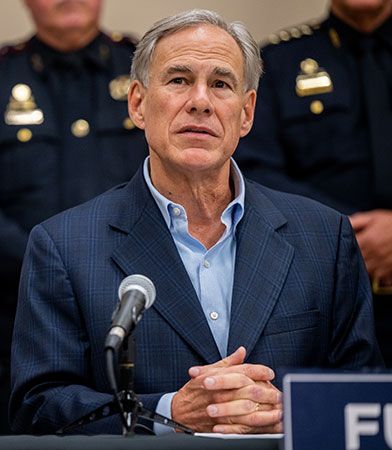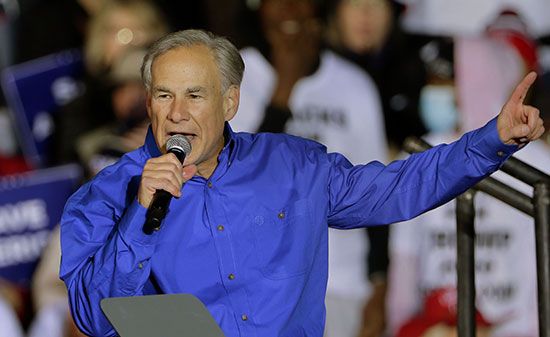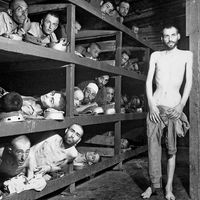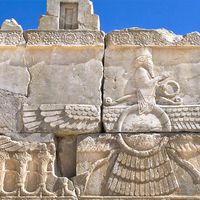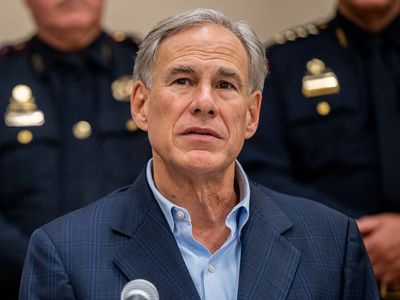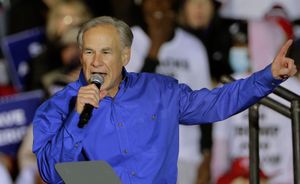Greg Abbott
Our editors will review what you’ve submitted and determine whether to revise the article.
- In full:
- Gregory Wayne Abbott
- Born:
- November 13, 1957, Wichita Falls, Texas, U.S. (age 66)
- Title / Office:
- governor (2015-), Texas
Recent News
Greg Abbott (born November 13, 1957, Wichita Falls, Texas, U.S.) American Republican politician who serves as governor of Texas (2015– ). He previously was the state’s attorney general (2002–15). A prominent figure in conservative politics, he notably opposes abortion and supports lenient gun laws and tough immigration policies.
Early life and education
Abbott is the younger of two sons born to Doris and Calvin Abbott. The family moved several times before settling in Duncanville, Texas. A serious runner, Greg Abbott was a member of the track team during high school, and he became known for his tenacity. When he was 16 years old, his father died from a heart attack. His mother became a real estate agent, and she later remarried. Abbott attended the University of Texas at Austin, where he studied finance. After graduating in 1981, he earned a law degree (1984) at Vanderbilt University.
Accident and attorney general
Abbott subsequently began working at a law firm in Houston. Shortly thereafter, in July 1984, he was seriously injured by a falling tree while jogging. The accident left him paralyzed below the waist and confined to a wheelchair. A practicing Roman Catholic, Abbott cited his faith for helping him endure a lengthy recovery. He later stated that the “accident broke my back, but not my spirit.”
Abbott eventually returned to work and later left the firm in 1992 to become a state trial judge. Four years later he was appointed to a vacant seat on the Texas Supreme Court by Gov. George W. Bush. Abbott was subsequently elected to the post twice. In 2001 he stepped down to run for lieutenant governor but soon dropped that bid in order to enter the race for Texas attorney general. He won the election in 2002 and took office that year.
During his tenure as attorney general, Abbott became known for supporting socially conservative issues and for challenging the policies of Democratic U.S. Pres. Barack Obama. During the latter’s presidency (2009–17), Abbott filed more than 30 lawsuits against the federal government. In 2014 he and other state attorneys general sued to overturn Obama’s executive order that prevented the deportation of some five million undocumented immigrants. The attorneys general ultimately prevailed. Abbott also sought to defend the state’s ban on same-sex marriage, but it was overturned in 2015 when the U.S. Supreme Court ruled in Obergefell v. Hodges that such unions were constitutionally protected. Many of Abbott’s other federal challenges concerned relaxing environmental regulations. He also opposed abortion and supported religious displays. Reelected to the office twice (2006 and 2010), he was the longest-serving attorney general in Texas history.
Governor of Texas
In 2013 Abbott entered the gubernatorial race, looking to succeed Rick Perry. During his campaign, Abbott supported traditional conservative policies in the Republican-leaning state. He called for low taxes and budget cuts and continued to criticize Obama’s administration. He maintained a lead throughout, and in the general election he easily defeated his Democratic opponent, Wendy Davis, a state senator.
After taking office in 2015, Abbott began to pursue an agenda that moved increasingly to the right. In 2017 he notably signed one of the most restrictive immigration bills passed by a state. Known to detractors as the “show me your papers” law, it authorizes law enforcement to check the immigration status of anyone they lawfully detain. The legislation also banned “sanctuary cities,” which shelter undocumented immigrants. To combat illegal crossings at the Texas-Mexico border, Abbott in 2021 announced a plan to construct a wall. Later that year some 900 feet (274 metres) of border wall was unveiled, though subsequent construction was limited. Amid a dramatic rise in illegal immigration in 2022, Abbott began busing migrants to various sanctuary cities, including Washington, D.C. While Democratic Pres. Joe Biden called it “un-American,” the governor accused the federal government of being “reckless” about border security.
Another key objective for Abbott was easing gun laws. In 2021 he signed a “constitutional carry” bill, which allows almost all Texans age 21 and over to carry handguns in public places without a permit. Abbott had earlier touted it as “the strongest Second Amendment legislation in Texas history.” The legislation came after several high-profile mass shootings in the state, including the 2019 incident at Robb Elementary School in Uvalde, which left 22 dead (including the gunman).
Citing his religious faith, Abbott also focused on limiting access to abortion. He supported a 2021 state law that banned the procedure as early as six weeks and made no exceptions for rape or incest, though it did permit abortions in cases of medical emergencies. The bill was unique in that it shifted enforcement from the government to private citizens, who were allowed to sue anyone who facilitated the procedure, including medical providers and individuals who provided transportation. The legislation received national attention and was challenged in the courts. However, in June 2022 the Supreme Court overturned Roe v. Wade, which triggered a Texas law that banned most abortions, making the 2021 legislation moot.
Other important issues on Abbott’s slate included “election integrity,” which became a major issue following the 2020 presidential election. In that contest, Republican Pres. Donald Trump was defeated by the Democratic challenger, Joe Biden, but Trump and other Republicans alleged widespread voter fraud despite a lack of evidence. In 2021 Abbott signed a bill that introduced a number of voting restrictions, including a ban on drive-through voting. While critics claimed it was antidemocratic, Abbott stated that the bill made it “harder than ever for people to cheat at the ballot box.”
Abbott’s policies proved popular with Texas voters. He was easily reelected in 2018, and in 2022 he faced Democrat Beto O’Rourke, a former U.S. House representative. Although O’Rourke was widely regarded as a strong opponent, Abbott still won by more than 10 percentage points. Abbott’s victory led to speculation that he might run for president in 2024.
Personal life
While attending the University of Texas, Abbott met Cecilia Phalen, who later became a teacher and education official. The couple married in 1981 and later adopted a daughter. When Abbott was sworn in as governor, his wife became the state’s first Hispanic first lady.

